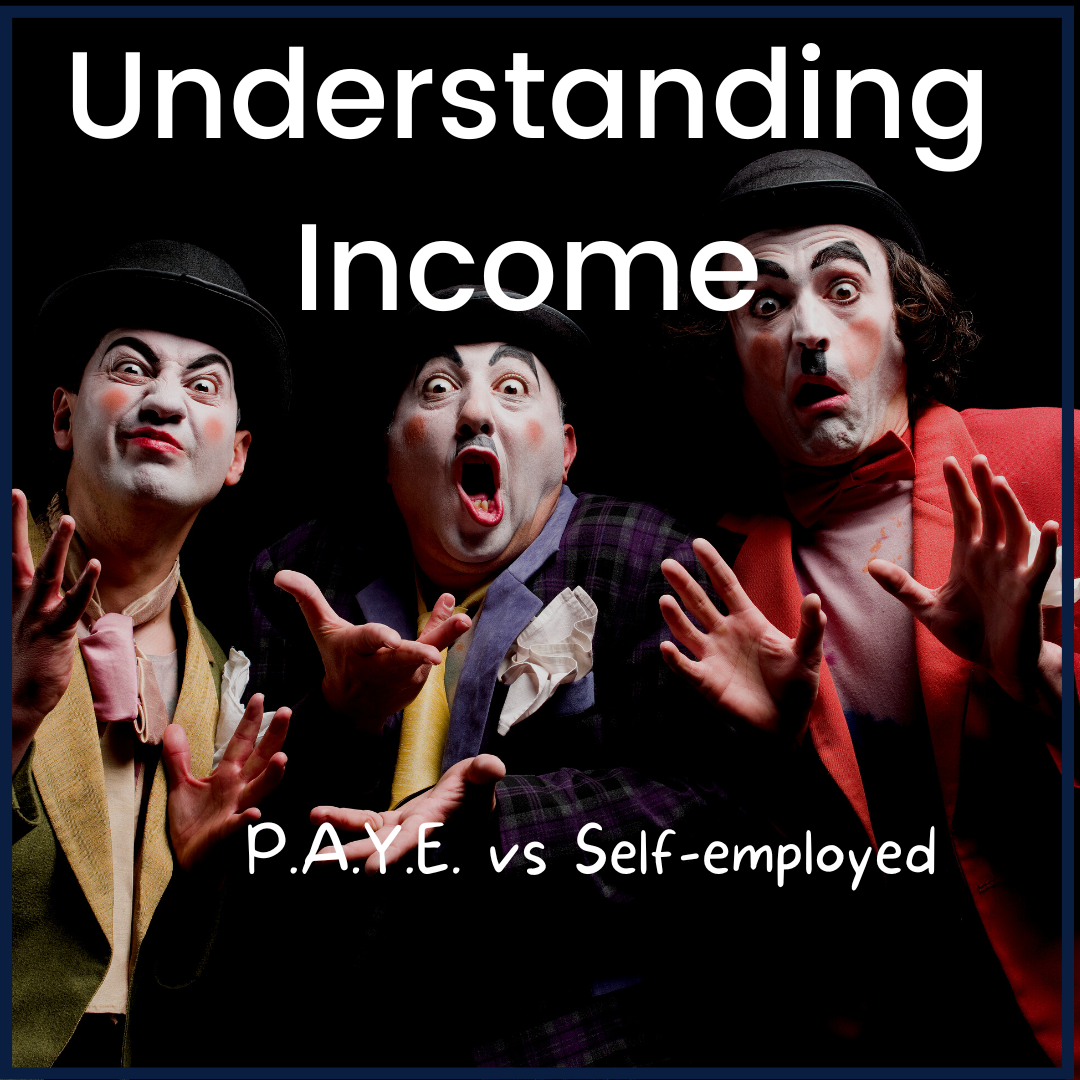Income: What do you need to record?
 Okay, so you are registered as self-employed! Congratulations! (If you haven't registered yet or have any questions on registering, then head over to our How To Register As Self-Employed post).
Okay, so you are registered as self-employed! Congratulations! (If you haven't registered yet or have any questions on registering, then head over to our How To Register As Self-Employed post).
Now then, being self-employed you can still have employed income too, like working front of house (FOH) or in a bar inbetween performing jobs. Most careers will involve a mixture of both income types so let's take a look...
Only self-employed? You can scroll down a little! A mixture? Me too... if you're just employed, then you probably don't need a tutorial...
Employed income
With employed income, your employer takes on a few responsibilities for you, like deducting tax from your pay and giving this to the government (HMRC) on your behalf - gee thanks! This is called the PAYE (Pay As You Earn) system. Note: this is the tax you may be able to get back upon filing your tax return - this "money back" is called a tax rebate.
Right, so each employer should provide you with a payslip for each month you work for them. This will tell you your gross income (before anything is taken off), your net pay (what is left) and a breakdown of any deductions that has been taken off (like income tax, pension or National Insurance). The payslip will also tell you which tax year your income will be recorded in for HMRC - hang on to these until you've submitted your self-assessment tax return!
Your employed income is pretty straight forward because of your payslips, but it's good to keep a clear record of what you are expecting to be paid each month. Personally, I have had one too many bad experiences with employers not paying me correctly - some not paying me at all! Do yourself a favour, make sure you're being paid everything you're owed.
Last thing to note - for each tax year, your employer(s) needs to provide you with either a P45 (if you leave their employment) or a P60 (if you remain employed at the end of the tax year - April 5th). Either way, this gives a full summary of the income you have received from the employer during that tax year plus the amount of income tax (and national insurance) that has been deducted, too. Check this agrees to your records and then input directly into your tax return. If using the SansDrama Web App as your recording method, it will do a full tax return report for you automatically.
Self-employed income
When you do self-employed work make sure you (or you and your agent, depending on the work) agree terms before you perform the work. This helps to avoid any unpleasant suprises when it comes to getting paid - again, I've had a few! Record, record, record all of the details in as much order as you can. This should include everything from your employer, amount you are owed, any expenses agreed (like travel) and dates worked. You'll be pleased to know that the SansDrama online app makes this easy! Unlike employed work, being self-employed means that you are entirely responsible for your own tax implications. This means you don't pay tax until you submit your tax return at the end of the tax year (unlike employed work where it is deducted when you are paid). Remember to budget for this as you don't want to get a bill at the end of the year if you haven't saved the money to pay it!
Invoicing
Listen up as this is how we get paid! It's great to get into the habit of invoicing the company you have worked for immediately after you have done the work (assuming your agent isn't doing the invoicing for you). Invoices should include all of the details we mentioned above and obviously the bank details of where you want the money to be paid - can't be forgetting that now can we!?
With Self-employed work you are responsible for your own tax - that's why we have something similar to "I am resposible for my own tax implications" on our invoices. If you're unsure, a template invoice is included on our Resources page or if using the SansDrama online app, it will do one for you at the click of a button - to be downloaded and emailed on. Also, don't forget to record the date of when you are actually paid (for cash-basis purposes).
We've got a whole post about invoicing and what to do when you are struggling to get paid - why not check it out?
The key is to get a bulletproof recording system set up (obviously we love the SansDrama online app) and your tax return will be a piece of cake - yum! I promise, that once you find your flow of recording your income it becomes second nature. It may feel like there's a million things you need to know but trust me, it gets easier and easier each month!
SansDrama is here to help YOU and everyone else in our amazing creative community. If you've found the site helpful then you can help us to keep this site free to use forever by using the SD Web App.
Love Jo and James x